Jerry Uelsmann
Love, hate, and indifference
“The opposite of love is not hate, it's indifference.” Elie Wiesel
Hate speech has been in the news recently as laws aiming to protect marginalised groups came into force. The police even created a cartoon character called the Hate Monster to encourage compliance.
I don't follow the outrage cycle so hadn't watched the video until this week. Yet, despite accusations of cute authoritarianism, the message is pretty benign: insecure people vent their anger on others, which briefly makes them feel good but eventually consumes them. It's an idea the Buddha would have understood.1
While hate may be a problem in society,2 I think we have the opposite problem in the cultural sphere. Instead of hate, there’s widespread apathy. With digital abundance, there is too much stuff out there to really hate. The target disappears into the void before you've even worked up a mild disdain.
In culture, hate in the form of negative inspiration has traditionally been a way of staking out one's aesthetic values. Here are some examples:
Vladimir Nabokov would spend time in interviews ragging on people like Freud and Faulkner. He hated their portentousness and avoided it in his own work.3
In 1986, Morrissey controversially dismissed black pop music, including all reggae, saying: "I detest Stevie Wonder. I think Diana Ross is awful. I hate all those records in the Top 40—Janet Jackson, Whitney Houston. I think they're vile in the extreme." While you may, like me, disagree with his assessments, you can’t deny that Morrissey's combination of kitchen sink drama and Oscar Wilde-style wit was more clearly defined as a result.
Lastly, the photography world is a pretty genial place, but Philip Jones Griffiths had strong words for Martin Parr for doing work at odds with his humanist values.
Maybe cultural hate can be useful. Indeed, whole musical genres have emerged from it. Would punk exist without hating the values and aesthetic of prog rock?
I am not much of a hater,4 but perhaps I should cultivate it. It might help me to refine my photography. This week, we can put this theory to the test, because I really hate the work of Jerry Uelsmann.5
Before Photoshop and before AI image generators, Jerry Uelsmann was creating surreal photomontages. A typical image might consist of a naked woman lying on the ground as a tree emerges out of her body. Uelsmann took Magritte-like liberties with reality using only darkroom tools.
Most photographers start with what they see, they pre-visualise the image and then capture it. Uelsmann believed in post-visualisation, experimenting in the darkroom to reveal new meaning.
And he was incredibly successful. In 1967, he was the first photographer to get a solo show at MoMA in New York.6 That year he also received a Guggenheim Fellowship. In 1970, he was inducted as a fellow of the Royal Photographic Society and was invited to give the annual Bertram Cox Memorial Lecture. Uelsmann’s work was perfectly in tune with the psychedelic trend of the late-60s and early-70s.
When Photoshop became popular in the early 2000s, Uelsmann was frequently referenced, with dozens of tutorials on YouTube showing how to recreate the Uelsmann effect. But what was once an arduous process requiring expertise now took minutes. As with Paul Outerbridge’s colour photography, what matters is not the technique but the resulting image. Is it any good? Do you like it?
I don’t. I find them uninteresting, overcooked, and fake. The juxtapositions are trite, the resulting images are pretentious. They are neither unsettling nor beautiful. They are unreal without being surreal.
Part of the reason I hate Uelsmann’s photomontages is because they give me the same uncanny valley feeling I get from AI images. They are dead.7 I feel it viscerally and I know it intellectually. Maybe hate is the wrong word … is it a phobia?8
Whatever it is, at least it is not indifference. Last weekend, I took my camera into the chaos of Celtic fans celebrating winning the title. What was I looking for were signs of life, raw life, the messy reality of it all. By saying no to Uelsmann, I say yes to life.
Check out my week in photos here:
The Buddha once said that hatred was like drinking poison and expecting the other person to die.
The BBC reported a 26% rise in hate speech in England and Wales between 2021-22.
Here are some strong opinions from Nabokov, culled from his collection Strong Opinions:
Albert Camus. Dislike him. Second-rate, ephemeral, puffed-up. A nonentity, means absolutely nothing to me. Awful.
William Faulkner. Dislike him. Writer of corncobby chronicles. To consider them masterpieces is an absurd delusion. A nonentity, means absolutely nothing to me.
Sigmund Freud. A figure of fun. Loathe him. Vile deceit. Freudian interpretation of dreams is charlatanic, and satanic, nonsense.
Karl Marx. Loathe him.
Albert Schweitzer. Detest him.
Though I was more vicious in the past.
Of course, Uelsmann died in 2022, which makes criticism much easier.
The show was curated by John Szarkowski just as psychedelia was taking off. In Mirrors & Windows (1978), Szarkowski was more critical:
[Uelsmann’s] pictures persuaded half the photography students of the sixties that manipulated photographs could be both philosophically acceptable and aesthetically rewarding, but few of those students adopted Uelsmann’s fey, Edwardian surrealism, or his very demanding technical system.
As an aside, on my recent trip to The Hague, I was struck by which paintings had gained and which had lost since the invention of photography. There were still lifes which depicted fruit with unbelievable accuracy, but these were far less interesting than the psychological depth in portraits by Rembrandt. We are undergoing a similar reassessment with photography now that AI is churning out a particular aesthetic.
Next week sees the opening of The Glasgow School of Art degree show. The image they chose to promote the event is clearly AI-generated. Artists have been complaining and although we don’t know the full backstory (is it satire?), its dead-eyed perfection is disturbing.



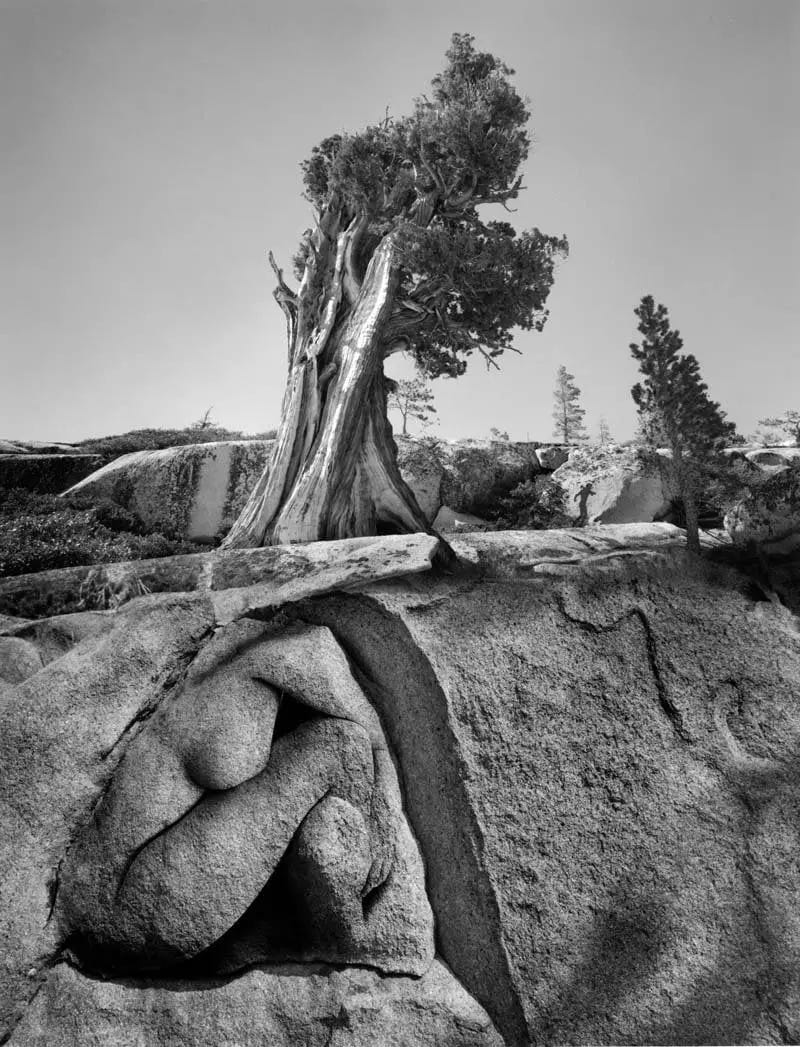
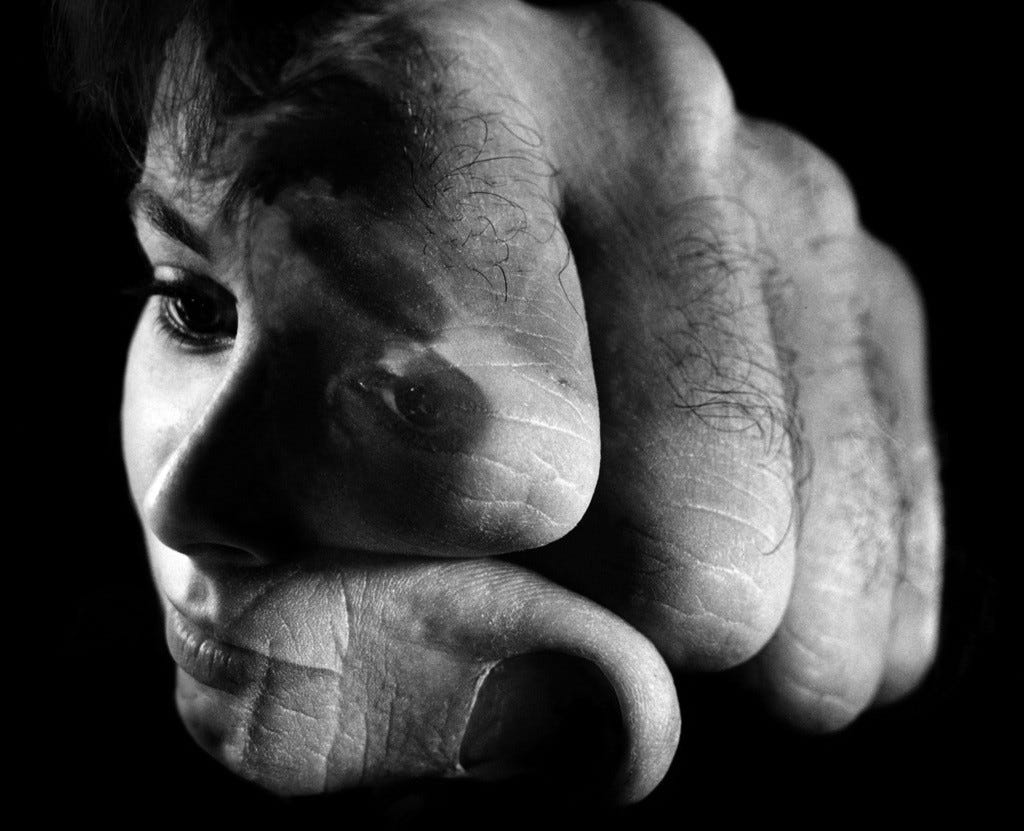

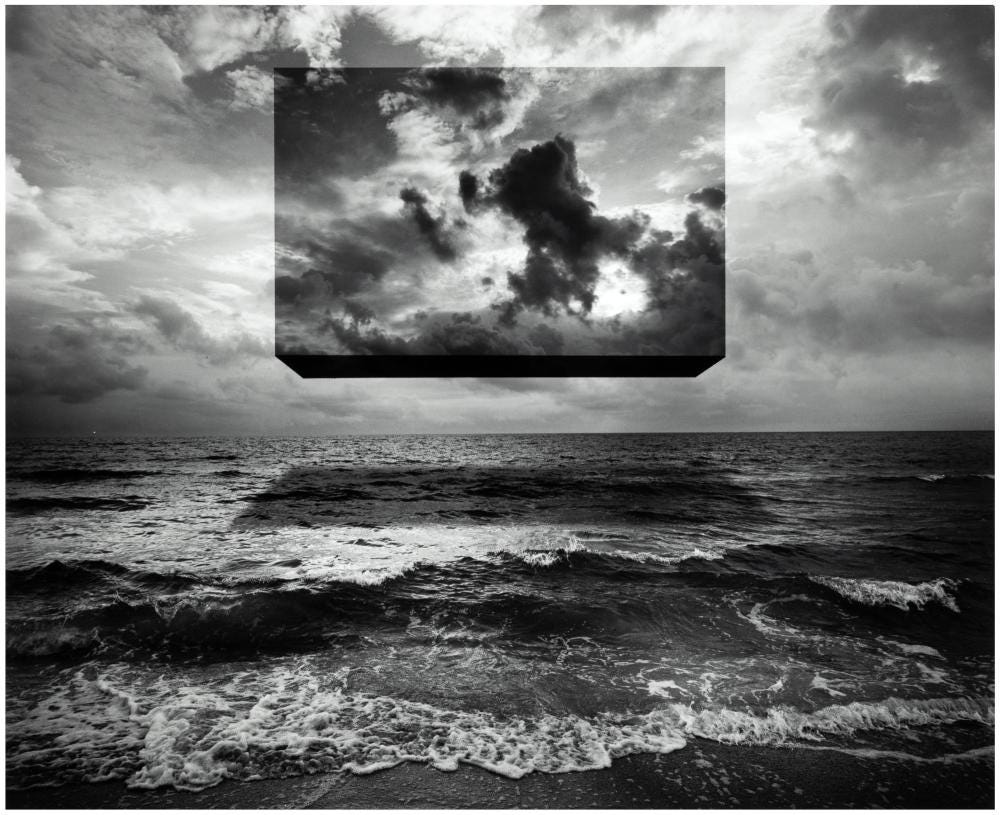
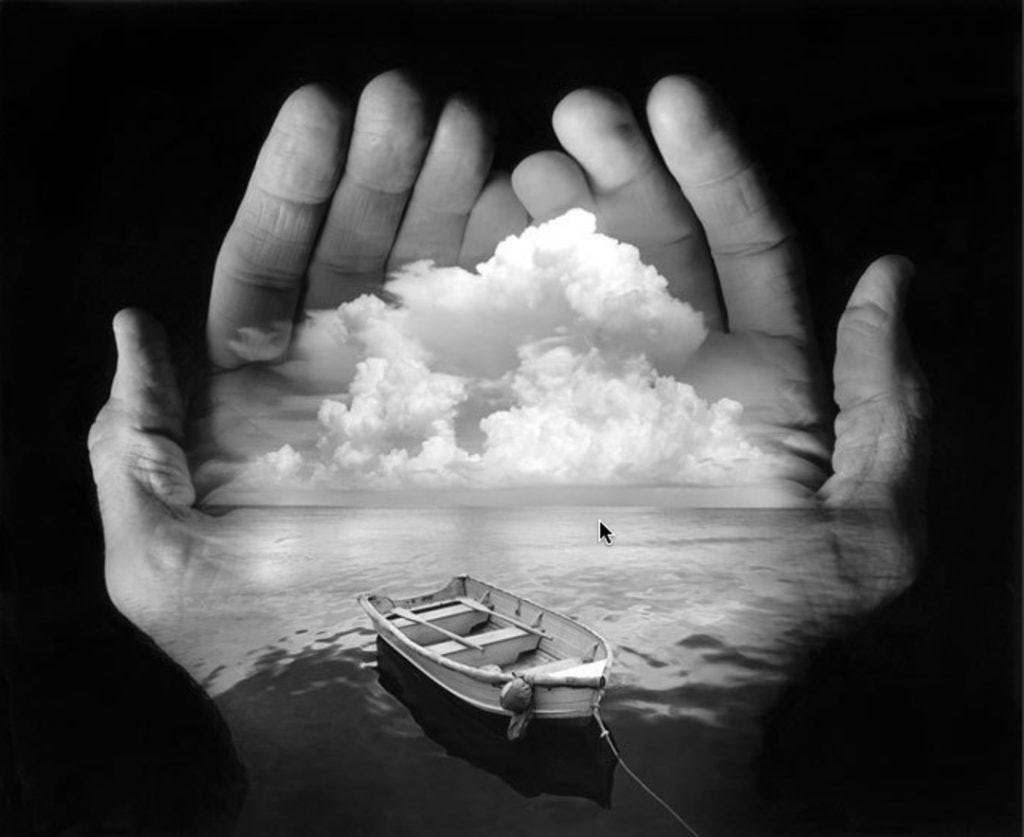
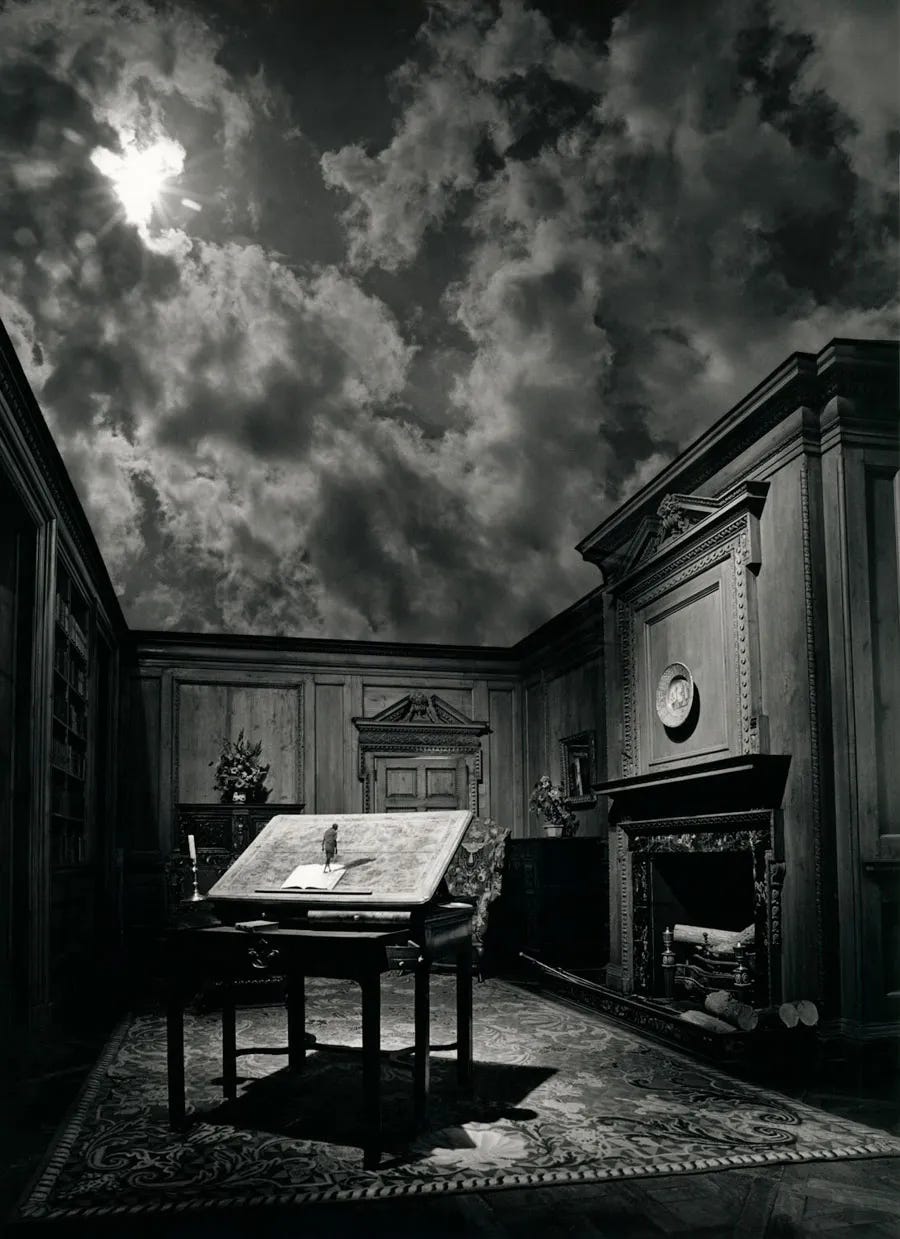

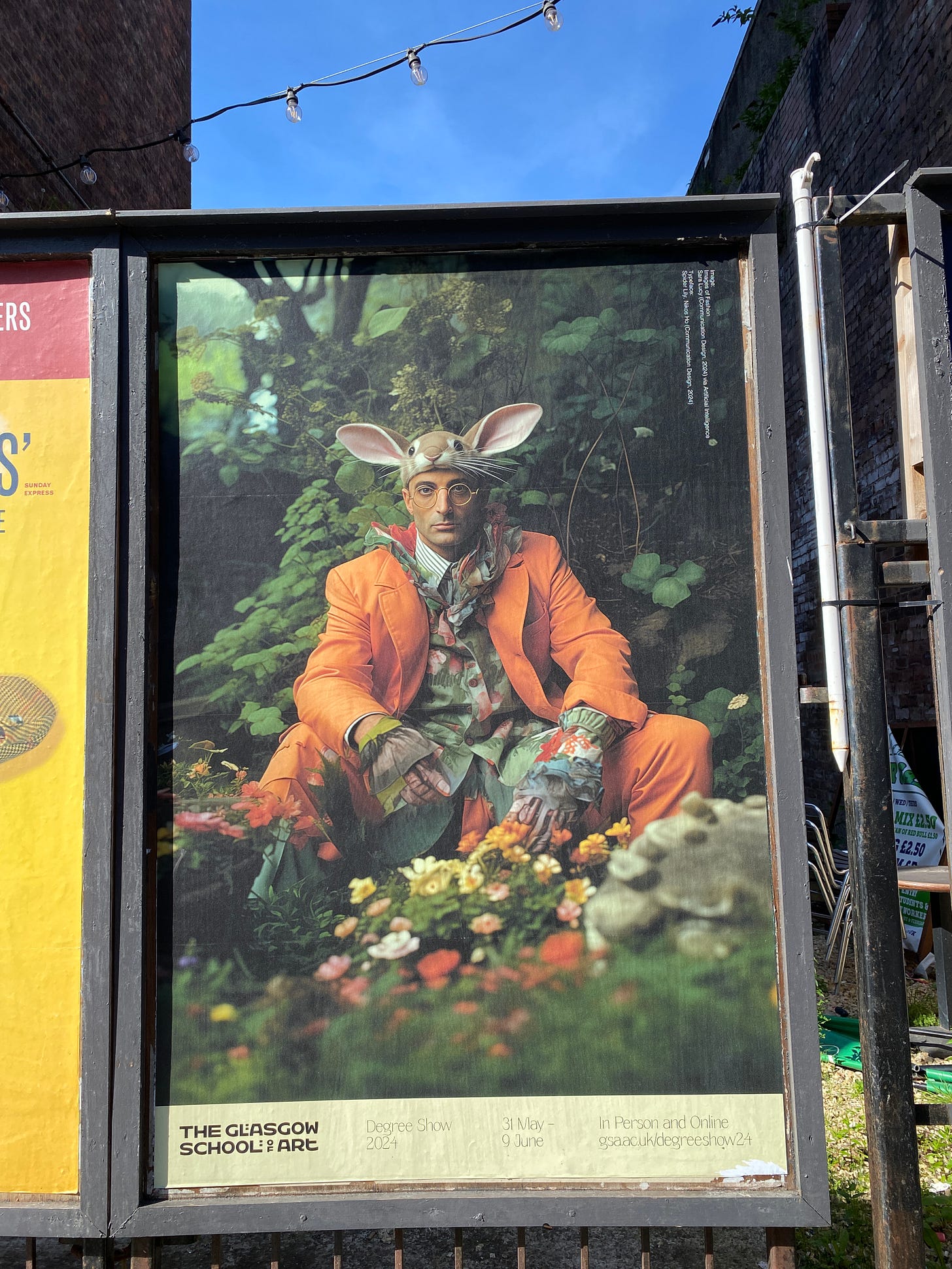
first time i seen jerry's work i thought of multiexposure which couldn't be in jerry's work as his "borders" align too perfect. but the thought remained. is jerry's work for everybody? no. but nobody could take away his genius and imagination of creating something like this in a darkroom. a pioneer if you like.
Plenty of hate happening in the comedy world 🤣 I find absolutely awful comedy very inspirational. Also think that being a vocal hater is quite a male thing (I just scroll on by). And being hated is a good motivator to prove people wrong